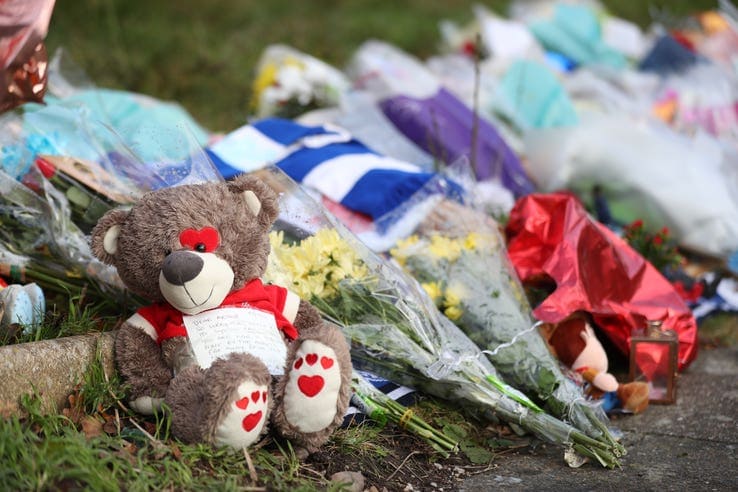
Hundreds of child cruelty offences were recorded by Cumbria police during the first year of the coronavirus pandemic, figures show.
The smiling face of Arthur Labinjo-Hughes, who was tortured by his father and stepmother before they killed him in June 2020, will forever be a reminder of the devastation child abuse can wreak upon innocent lives.
But the six-year-old boy is just one of thousands of children in the UK to have been abused during the pandemic.
Home Office data shows Cumbria Constabulary logged 262 crimes of child cruelty in 2020-21 – up from 209 the year before.
The number of offences logged during that time was around three times higher than the 81 recorded in 2012-13, when records began.
Across England and Wales, child cruelty offences leapt by 12 per cent to a record 25,000 last year, despite authorities struggling to identify some of those at risk amind national lockdowns and school closures.
Nationally, offences have almost quadrupled since 2012-13, with forces recording more than 130,000 crimes in less than a decade.
Of those, 1,527 were logged by Cumbria Constabulary.
The Government said the dramatic national increase in offences is likely to have been driven by improvements in recording, rather than in instances of child cruelty.
However, the National Police Chiefs’ Council and children’s charity the NSPCC believe there is more to be done to protect children.
Pierre Hyman, senior policy officer at the NSPCC, called for Government investment to strengthen safeguarding and ensure authorities work together to tackle the issue.
He added: “To see year after year the number of child cruelty offences rise so dramatically is concerning, particularly following the tragic case of Arthur Labinjo-Hughes.
“We have similarly seen a rise in calls to our helpline around child abuse and neglect.
“We need political leadership on ensuring child abuse victims are supported in the criminal justice system.”
Separate figures show the majority of the 278 child cruelty cases closed by Cumbria Constabulary last year were never brought before the criminal courts – 21 (eight per cent) resulted in a charge or summons being issued, though some matters may have been addressed in the family courts.
The force transferred 19 cases (seven per cent) to other authorities for further investigation.
Just 1,000 out of more than 24,000 cases closed by police forces nationally last year ended with a charge or summons, the figures show.
And recent Department for Education figures show two-thirds of children looked after by councils across England are in care due to abuse.
The National Police Chiefs’ Council’s lead for child protection, deputy chief constable Ian Critchley, said police worked closely with other authorities to tackle child cruelty but said there were “complex challenges” to overcome.
He added: “We encourage anyone who believes a child is being abused to report their concerns, no matter how small they seem.”
A Government spokeswoman said the police were expected to use all powers available to them to investigate and record child abuse.
She said a national review was underway and a targeted inspection was launched following the murder of Arthur Labinjo-Hughes.
Last year, the Government provided £11 million to the See, Hear, Respond programme, which aimed to support vulnerable young people during the pandemic.
It also made £1.8 million available to the NSPCC to expand and promote its helpline.








